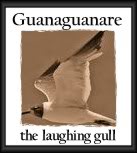XXVII. COMPARISONS.
By A.D. Russell
Las Madres del Cacao flame
In crimson every year;
So my heart kindles at her name,
Yet faints when she is near:
Thus sinners sink 'twixt joy and shame
When heaven's gates appear.
The Ballata in each fourth year
Bedecks itself in gold;
But oh, the wonder of her hair,
Fold over golden fold.
Is as a halo — a despair
For mortals to behold.
The roble scents the fainting air,
And spreads its tender bloom :
But every scene grows fairer where
Her presence fills the room;
We breathe a more celestial air,
A spiritual perfume.
So earthly things resemble her,
But heavenly things more well:
A something sets our hearts astir
Which lips can never tell:
To think of her as woman, were
A thought unthinkable.
p. 124
NOTES.
For a Count of the Holy Roman Empire — such our friend
was — to have to write a letter of apology (see Legend XIV),
was a thing never to be got over.
Also, as he admitted himself, the Count etait ne farceur.
(I began, in fact, to have doubts about his good faith as to
the Phantom Boat, and the impossibility of the Devil flying
over Montserrat. See Legends III and IV).
It is scarcely surprising, therefore, that Scribbler was not
long let alone.
The Count went to work in rather a shabby way, I consider.
Pretending to be acting from the highest motives, when in
reality he was merely venting his spleen. He had a soft side for
the Child, however; and conceivably may have persuaded
himself he was acting in her interest.
He asked Scribbler, bluntly, what were his intentions
regarding the girl. What was the meaning of his daily visits
to "Holyrood"? I may explain that the Magnate had rented
a magnificent palace of that name, at the St. Clair comer of
the Savannah. Scribbler and I were staying at the Queen's
Park Hotel.
"Moi, je suis homme marie." "It makes nothing how often
I go there." His English commonly went wrong under
excitement. And for Ignotus" . . . .
(Ignotus is my nom-de-plume. I have no desire to identify
my real name with Scribblerian literature).
"Ignotus," said he coolly, '' is too old to think of changing
his condition."
Impertinence! My age, after all . . . .
But no matter. Were they trifling with one another's feelings,
he desired to know. If so, both would regret it. The Magnate
would want a Prince for her -perhaps a Royalty. A Duke at
the very least. Even if Scribbler was a millionaire. . . .
Scribbler shut him up rather well. He was not a millionaire,
he said; but he mentioned a figure considerably above what
we had dreamed of. (The Count treated him after that with
marked respect). He had not breathed a word of sentiment
to the girl. He would not think of doing so. He knew he was
unworthy of her. No man would ever be worthy. She was an
angel . . . .
p. 125
The finest gusher in the Magnate's oil-fields wasn't in it
with Scribbler.
Then, of a sudden, the well choked itself, and — Scribbler
became hysterical. He knew he was an idiot! All that the
Count had said, he had told himself a thousand times over. —
He would go and drown himself !
Who, then would console the Child, the Count demanded.
He must live for the girl's sake. Perhaps, after all, the Magnate,
who was a plain man, might not care for royalties. He even
went the length of offering to entrer en pourparlers with the
old man on Scribbler's behalf. Scribbler, however, even in a
collapsed state, had more common-sense, After the recent
Auto-da-fe incident, he probably thought the Count would not
be the best intermediary.
This effusion, entitled "Comparisons," was among
Scribbler's papers. Not among those done up by themselves
and labelled "Legends." Still, as illustrating Scribbler's con-
sciousness of unworthiness and hysterical tendency, it may be
of interest.
"Madres del Cacao" ("Mothers of the Cocoa.") A fanciful
name given bv the Spaniards to the immortelles planted as
shade trees. (See Legend XIX) *
Ballata. This fine hard-wood tree flowers only in wet years.
Roughly, every third or fourth. The flower is not exactly
"gold." Neither was the Child's hair-"Entre or et roux,"
the Count called it. The flower is an intermediate tint too.
The fruit is delicious. Pity Scribbler could not have worked
that in, rather than the Roble, whose scent, though sweet,
is rather overpowering at -close quarters. Hence Scribbler's
"fainting air." But the flower is glorious; a rich, dull
yellow.
p. 126
SOURCE: Legends of the Bocas, Trinidad. By A.D. Russell, London: Cecil Palmer, 1922. 124-126
..............................................................................................................................
"Patria est communis omnium parens" - Our native land is the common parent of us all. Keep it beautiful, make it even more so.
Blessed is all of creation
Blessed be my beautiful people
Blessed be the day of our awakening
Blessed is my country
Blessed are her patient hills.
Mweh ka allay!
Guanaguanare
Comparisons [Poem]
Subscribe to:
Post Comments (Atom)












0 comments:
Post a Comment